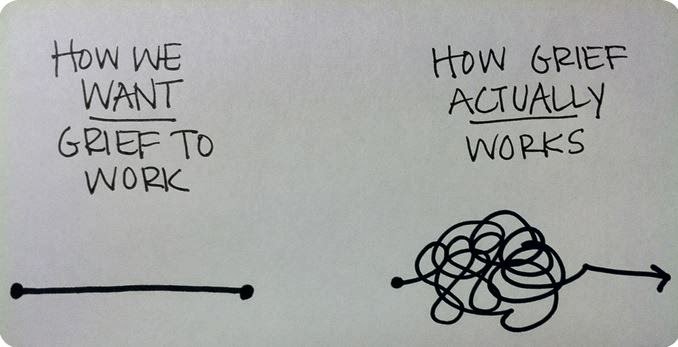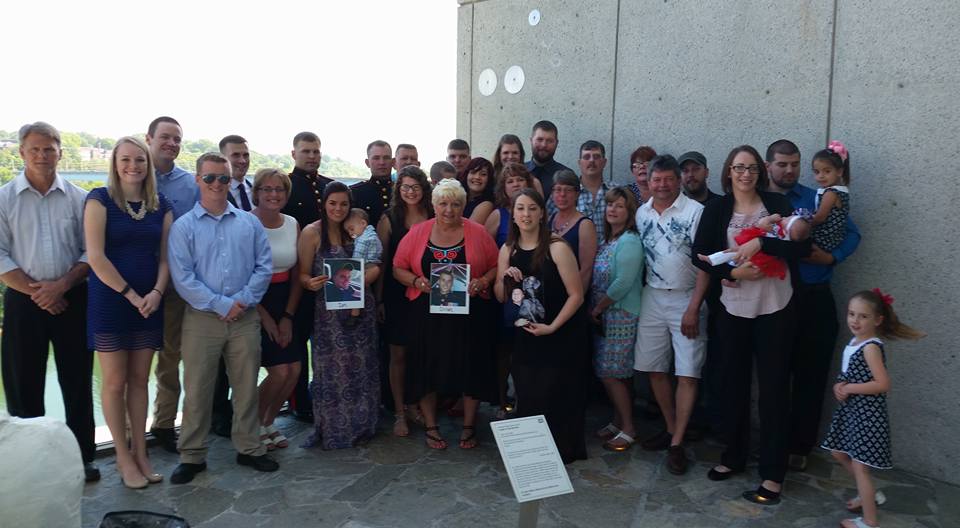This may sound negative and contradictory to my blog title, but I believe this post is just as important as any. It also explains many things going on in my life right now.
Recently, my immediate family has lost two of its family members.
One of these family members was KIA and died at a young age approximately 10 months ago.
Another of these family members passed away peacefully, from old age, surrounded by family approximately three weeks ago.
Although grief can take many different forms and be caused from many different events, my family has been “put through the ringer” so to speak as of late. As unfortunate as it is, grief is something my family knows a little too well right now.
So let’s talk about grief. I don’t pretend to be an expert, but here are some things I have learned through myself and my family during the last ten months. These are facts I would want my family and friends to know. I think it is important for other people to know these points in the event that (God forbid) they become a main supporter to someone they love who is entering the grieving process.
- Everyone grieves differently. I have learned that hard times affect everyone differently. Grieving processes can take weeks, months, or years depending on the person. Be patient with the person who is grieving. Understand that even though you might have moved on from the incident that broke your heart, another person might still be struggling.

- Sometimes, a grieving person needs to be left alone. There are times during grief when a person just needs to be alone. If you are a friend of a grieving person who tells you they aren’t feeling up to hanging out, don’t take it personally. It’s not meant to be a personal attack, it just means that maybe the person wants to curl up on the couch with a box of tissues and watch sappy romantic movies.

- Sometimes, a grieving person needs to be surrounded by people. There are also times during grief when a person needs to be surrounded by people who support them. Sometimes, hugs, laughter, and tears are what someone needs to feel okay.

- Just because a person is grieving, doesn’t mean they aren’t still a happy person. A person may be fighting a silent fight of grief or a public fight of grief. Just keep in mind: if a person is in a grief/mourning period, that person may still see all the things in life they have to be happy about. In fact, a person who is grieving likely has a higher appreciation of the blessings they do have.

- Please don’t ignore someone’s grief. If you are friends with someone who is grieving, don’t be afraid to be a shoulder for them to lean on. Supportive friends and family are everything to a person who is grieving. When you do text/call/contact a grieving person, don’t act like nothing happened or nothing is wrong. It hurts more than if you acknowledge the person’s grief. If a grieving person doesn’t want to talk about a certain topic, trust me, they’ll tell you. They won’t be mad that you asked. They’ll be happy that you care. All they will want is a change of subject.

- Do not, under any circumstance, tell someone to “get over it” or anything similar. Surprised to see this one here? Yeah, so am I. Except I had this happen to me. Shortly after one of my family members was killed. Firstly, this is the least supportive thing you could say to someone who is grieving. Secondly, this phrase is a great way to earn a one-way-ticket to ending a friendship/relationship with a grieving person. Don’t say it. Just don’t.

- Loss that leads to grief will cause a turning point in someone’s life. A person will deal with grief in one of two ways. A person will either choose to be defeated by grief for the rest of their life, or a person will choose to let grief make them into a stronger, better, more whole human being. What can you do that will influence the outcome of a grieving person? Be there for that person. Be there for the hard times. Be there if they’re angry at you. Be there if they’re crying out for you. Be there to support them. Be there when the dust settles. Be there when others leave. Just be there. And hopefully, with support and love from those who surround them, a person who is grieving will choose the path of grief that will lead to a positive outlook on life.

- The grieving process may or may not end. Please don’t expect to understand the stage of grief a grieving person may be in. Trust me, they not even know themselves what stage of grief they are experiencing. For some people, the final stage of grief, acceptance, may last the rest of their lives. Acceptance will come in many different forms. Although true grieving may seem to have ended, a grieving person still feels their loss frequently. This loss may feel stronger on some days than on others. Just as some days will be harder than others. Some days will be filled with happy memories, some with sad memories, and some with both. With this last tip, my point to you is this: support your grieving loved one and don’t assume you know the stage of grief they are experiencing. Don’t assume they are “finished” grieving. The only person who can truly understand someone’s grief is the person who is experiencing it. Support your grieving loved one whether it has been ten days or ten years since they have experienced a difficult loss.

Love and prayers to all who are enduring the fight of grief. I pray you all have the support you need to come through it a stronger person.
Think positive,
Rachel
